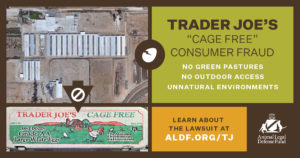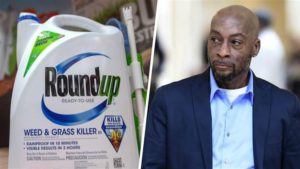Roundup causes cancer, according to ruling from jury in landmark case against agricultural giant, Monsanto
Jury rules in favor of terminally ill cancer patient who’s illness was caused by glyphosate, a chemical used in the popular Monsanto herbicide Roundup and RangerPro
Sometimes it starts with just one person. This week, the first case to be brought to trial against agricultural giant, Monsanto, had a surprising outcome. A jury ruled that the chemical glyphosate found in the popular herbicide, Roundup and RangerPro, created by Monsanto, caused cancer in 42 year old groundskeeper Dewayne Johnson. Johnson was awarded $289 million in damages after the jury heard evidence that glyphosate is knowingly a human carcinogen. This ruling is monumental, as it brings the dangers of Monsanto’s products to light and paved the way for almost 5,000 other plaintiffs that are waiting for their cases to be brought to trial against Monsanto.
“The jury found Monsanto acted with malice and oppression because they knew what they were doing was wrong and doing it with reckless disregard for human life,” said Robert F. Kennedy Jr., one of Johnson’s attorneys, according to the Associated Press.
“We were finally able to show the jury the secret, internal Monsanto documents proving that Monsanto has known for decades that … Roundup could cause cancer,” Johnson’s lawyer Brent Wisner said in a statement, according to The Guardian.
“In 2015 the International Agency for Research on Cancer, the World Health Organisation’s cancer agency, concluded that it was “probably carcinogenic to humans”. but the US Environmental Protection Agency (EPA) continues to insist that glyphosate is safe when used carefully.
Campaigners question how the EPA assessment was reached, citing evidence of what they say was inappropriate industry involvement in the decision.
Some Democrats have even called for a Department of Justice investigation into alleged collusion between government officials and Monsanto.
In California, where a judge recently ruled that coffee must carry a cancer warning, the agriculture industry sued to prevent such a label for glyphosate even though the state lists it as a chemical known to cause cancer.
In Europe, too, the battle over glyphosate has been fierce. French President Emmanuel Macron is trying to ban it despite the resistance of some French lawmakers and the fact that the European Commission recently granted the weedkiller another five-year licence.”
Here is the judges ruling on the case.
For more in-depth coverage of the topic read here:
~~~~~~~~~~~~~~~~~~~~~
Following the case, if you would like to be an informed consumer and grower that avoids Monsanto’s chemical herbicides and pesticides here is a great guide to sign up for: Shoppers Guide to Pesticides in Produce.
The best way to stay informed is to stay up to date on the Dirty Dozen and Clean Fifteen lists.
Not all Organic dairy is Created Equal!
Report by the Cornicopia Institute shows that the organic label, doesn’t necessarily mean sustainable or healthy for dairy products anymore
With the rise in popularity of organic foods, the USDA has started backing factory-scale farms to become “organic”, which has caused a lot of family-scale farmers, who have been using organic practices for years, to suffer. Organic dairy is no longer hard to find, but knowing which organic dairy farmers are actually using sustainable and real organic practices can be hard.
“With the USDA’s failure to protect ethical industry participants and consumers from outright fraud, using our Organic Dairy Scorecard is a way for organic stakeholders to take the law into their own hands,” said Mark A. Kastel, Co-director and Senior Farm Policy Analyst of The Cornucopia Institute. “In every market and product category, consumers can vote in front of the dairy case to economically support authentic organic farmers while simultaneously protecting their families.
The Cornucopia Institute has created a great resource for consumers, that can help consumers vote with their dollars, an Organic Dairy Scorecard.
To read more on the organic dairy issue click here:
Trader Joe’s to change mis-leading labels on eggs
Do you know what it really means when your eggs have the “cage-free” label? M ost people would assume that it means that the chickens were allowed to roam freely, and live like real animals, right? No, it only means that the hens are not raised in cages, but they are still raised “wing to wing” in industrial indoor structures, never seeing the outside or being able to roam freely.
ost people would assume that it means that the chickens were allowed to roam freely, and live like real animals, right? No, it only means that the hens are not raised in cages, but they are still raised “wing to wing” in industrial indoor structures, never seeing the outside or being able to roam freely.
Now consumers can make a change though, because the Animal Legal Defense Fund filed a suit against top grocery store, Trader Joe’s and won! Trader Joe’s now has to change their labeling to coincide with the actual conditions the chickens live in. The Cornucopia Institute has created a great resource that explains and uncovers the true meanings of labels that have things like, “all natural”, “cage-free”, “no antibiotics”, “no hormones”, “vegetarian diet” etc. Here is the Egg Label De-Coding Guide.
Another great resource they have created is the Organic Egg Scorecard. Where you can look up the brands directly so you can choose well in the store.
Ultimately the best thing to remember is to try and get to know your farmer, and buy pasture raised and organic!
Earth’s current climate change path, could lead to a repeat of prehistoric weather conditions
Climate change is a hot topic in the news right now. Last week, The New York Times Magazine ran an article spanning the entire magazine on the current climate change situation and how we could have made changes earlier in the century. This week, The Atlantic, documented an article that talks about not just 30 years ago, but thousands of years ago, when mammals first came to our planet. Most of us have no idea really what the planet looked like when the first mammals evolved, but it was more of a story of survival against very difficult odds, than it was about actually living. Here is an excerpt:
“But the most striking feature of this early age of mammals is that it was almost unbelievably hot, so hot that around 50 million years ago there were crocodiles, palm trees, and sand tiger sharks in the Arctic Circle. On the other side of the blue-green orb, in waters that today would surround Antarctica, sea-surface temperatures might have topped an unthinkable 86 degrees Fahrenheit, with near-tropical forests on Antarctica itself. There were perhaps even sprawling, febrile dead zones spanning the tropics, too hot even for animal or plant life of any sort.
This is what you get in an ancient atmosphere with around 1,000 parts per million (ppm) of carbon dioxide. If this number sounds familiar, 1,000 ppm of CO2 is around what humanity is on pace to reach by the end of this century. That should be mildly concerning.”
The only way to predict the possible effects of the future is to examine our past, and from the current findings, if we don’t make a change now, we may be faced with some very adverse conditions in the future. When given clear pictures of what could actually happen to our planet if we don’t make some changes, do you think people will listen and make a change?



Comments are closed.